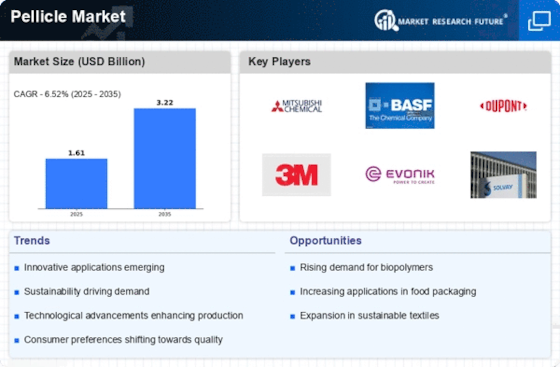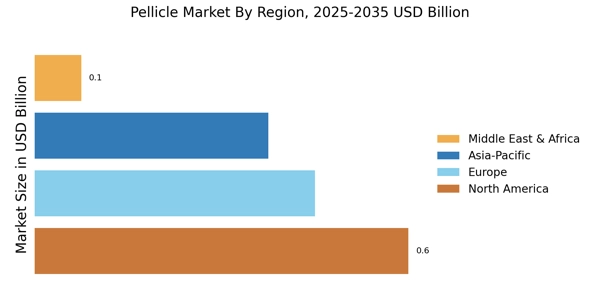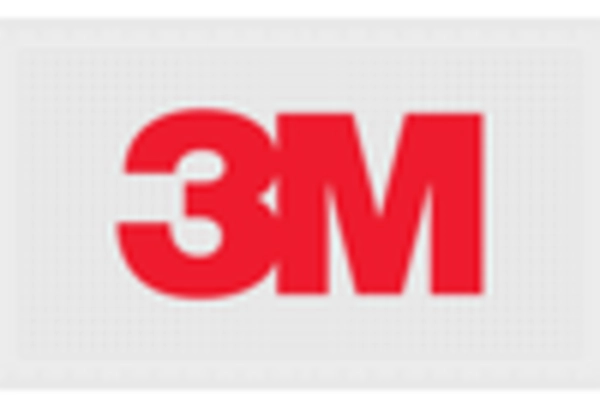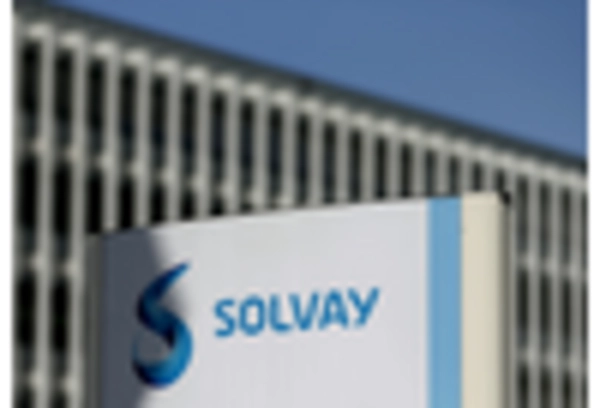Growing Environmental Regulations
The Pellicle Market is increasingly influenced by growing environmental regulations that mandate sustainable practices in manufacturing. As companies face pressure to reduce their environmental footprint, the demand for eco-friendly pellicles is likely to rise. This shift towards sustainability is not only a response to regulatory requirements but also aligns with consumer preferences for environmentally responsible products. The pellicle market is expected to see innovations aimed at reducing waste and utilizing recyclable materials, which could enhance the appeal of pellicles in the semiconductor industry. As manufacturers adapt to these regulations, the Pellicle Market may experience a transformation that prioritizes sustainability alongside performance.
Increased Focus on Quality Control
Quality control remains a critical aspect of semiconductor manufacturing, and the Pellicle Market is poised to gain from this emphasis. As companies strive to minimize defects and enhance product reliability, the role of pellicles in maintaining photomask integrity becomes increasingly vital. The market for pellicles is expected to grow at a compound annual growth rate of around 8% over the next five years, driven by the need for stringent quality assurance in production processes. This focus on quality control not only enhances the performance of semiconductor devices but also reduces waste and operational costs. Consequently, the Pellicle Market is likely to see a rise in demand for innovative pellicle solutions that meet the high standards set by manufacturers.
Expansion of the Electronics Sector
The Pellicle Market is benefiting from the rapid expansion of the electronics sector, which encompasses a wide range of applications, including consumer electronics, automotive, and telecommunications. As the demand for electronic devices continues to rise, the need for advanced semiconductor manufacturing processes becomes more pronounced. In 2025, the electronics market is anticipated to exceed 1 trillion USD, creating a substantial opportunity for the pellicle market. This growth is likely to be fueled by innovations in technology, such as 5G and IoT, which require sophisticated semiconductor solutions. As a result, the Pellicle Market is expected to experience increased demand for pellicles that can support the production of cutting-edge electronic components.
Technological Innovations in Pellicle Materials
The Pellicle Market is witnessing a transformation driven by technological innovations in pellicle materials. Advances in material science are leading to the development of pellicles that offer enhanced durability, transparency, and resistance to environmental factors. These innovations are crucial as manufacturers seek to improve the performance and longevity of pellicles used in semiconductor production. The introduction of new materials is likely to expand the application range of pellicles, catering to diverse manufacturing needs. As the industry evolves, the Pellicle Market is expected to adapt by incorporating these advanced materials, thereby enhancing the overall efficiency and effectiveness of semiconductor manufacturing processes.
Rising Demand for Advanced Semiconductor Technologies
The Pellicle Market is experiencing a notable surge in demand due to the increasing complexity of semiconductor manufacturing processes. As manufacturers strive to produce smaller and more efficient chips, the need for pellicles, which protect photomasks during lithography, becomes paramount. In 2025, the semiconductor market is projected to reach a valuation of approximately 600 billion USD, indicating a robust growth trajectory. This growth is likely to drive the pellicle market, as advanced semiconductor technologies necessitate high-quality pellicles to ensure precision and yield. The Pellicle Market, therefore, stands to benefit significantly from this trend, as manufacturers seek to enhance their production capabilities and meet the evolving demands of the electronics sector.

















